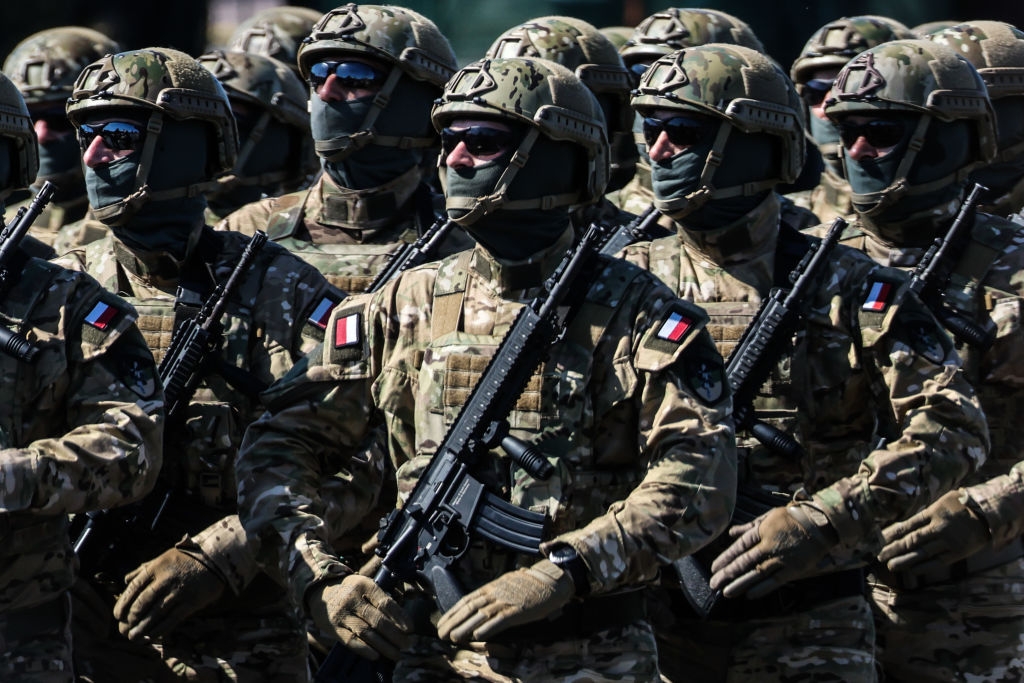“Only the Eastern Europeans have the incentive to take Trump’s security threats seriously.”
Over subsequent centuries, Polish leaders like Marshal Józef Piłsudski have occasionally tried to reclaim this illustrious mantle, seeing Poland not as a European hegemon, but rather as a power counterweight to both Russian and German expansionism. It goes without saying, of course, that the sober liberals of the Civic Platform don’t see themselves as Sobieskis reborn. Yet with Trump taking a hammer to the foundations of the European security order, the pendulum of history does seem to be swinging back towards a Polish military renaissance.
It surely helps that since the end of the Cold War, Poland has worked hard to build up its forces. Quite aside from the headline GDP numbers, that’s clear enough elsewhere too. The country has emerged as the largest tank power in Europe, and boasts the third-largest fleet of F-16 jets on the continent. That’s shadowed by a recent shipment of F-35s from the US, with Poland receiving a custom model of the plane from Lockheed Martin. The new batch, for its part, is aptly named “Husarz” — a nod to the winged hussars of old. At the same time, Poland’s military leadership recently announced plans to develop an AI centre to support decision-making. Not to be outdone, Warsaw also said it was acquiring 486 HIMARS launchers: a ridiculous number, if undoubtedly a statement of intent.
No less important, Poland has geographical reasons to take defence seriously. The only Nato member to share borders with both Ukraine and Russia, Poles have learnt by hard experience that their location on the North European Plain is painfully exposed. Since Trump’s election, though, officials in Warsaw have eagerly underlined that, whatever the political priorities in Washington, they remain unconcerned about America’s commitment to Poland in particular or Nato in general.
We shouldn’t imagine that Poland can become entirely self-sufficient here, at least not for the moment anyway. It surely speaks volumes that Poland’s president recently felt the need to remind the world, and presumably Trump himself, of the importance of the American alliance. The fact he did so on Poland’s independence day is even more revealing.
But nor should Andrzej Duda worry too much: despite his tough talk, Trump will find it almost impossible to escape Europe entirely. With the landmark opening of the first permanent US base in Poland last week, as part of a broader pan-European missile defence shield, America will necessarily continue to play some role in the region. Ever the businessman, Trump is also likely to see Eastern Europe as an enticing customer for America’s military-industrial complex. Earlier this year, the US granted loans to Poland and Romania, totalling $2 billion and $920 million respectively, all to buy American weapons. Except similar deals over the years ahead — especially if Trump is confident Nebraska farm boys won’t need to be deployed to help use them.
Indeed, the President-elect’s essential self-interest could yet prove a boon to Eastern Europe. That’s doubtless true if Trump reduces the American troop presence enough to satisfy his domestic base — but nonetheless retains the country’s existing military infrastructure. That, in turn, could offer countries like Poland the best of both worlds: the Americans would provide essential support, in line with their own interests, even as Warsaw develops a more independent defence policy, one that ultimately goes beyond the strictures imposed by Washington.
